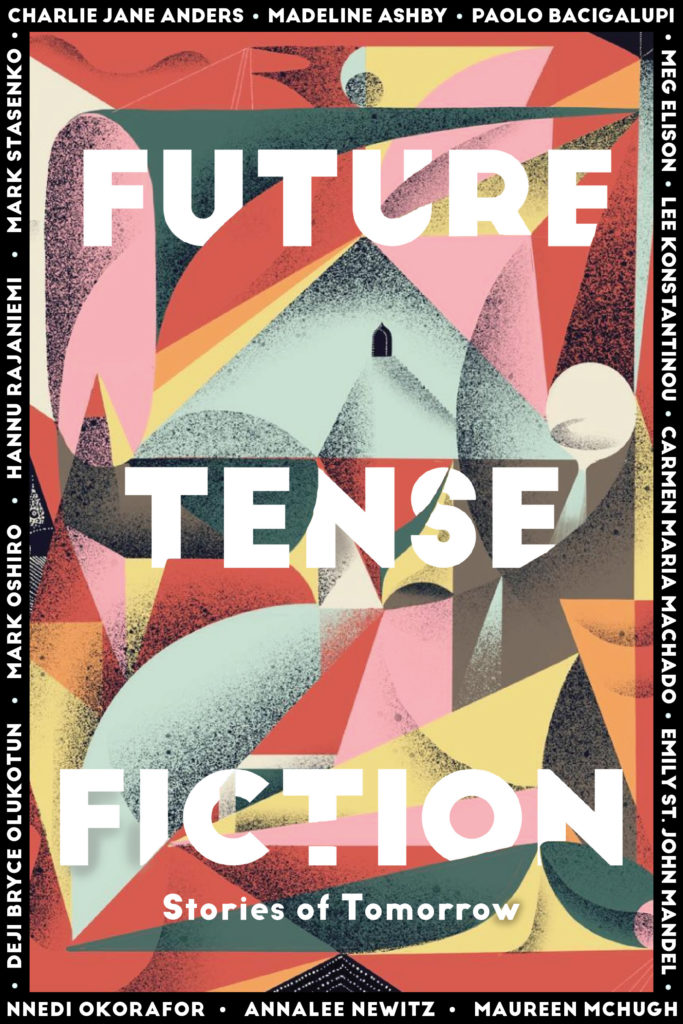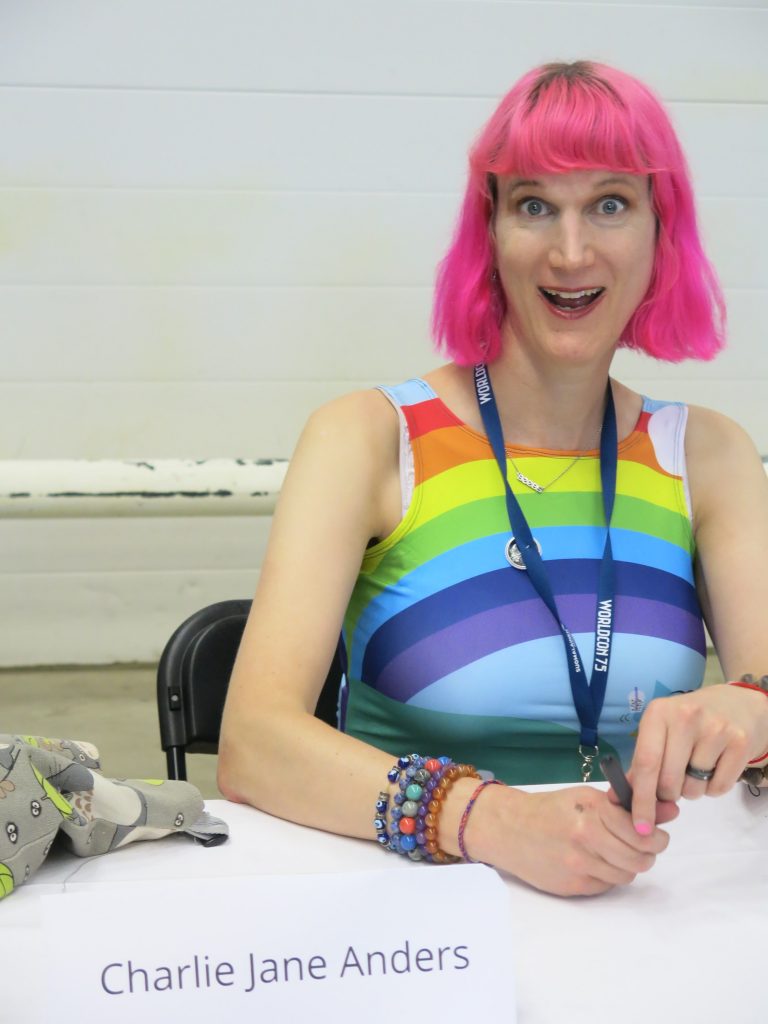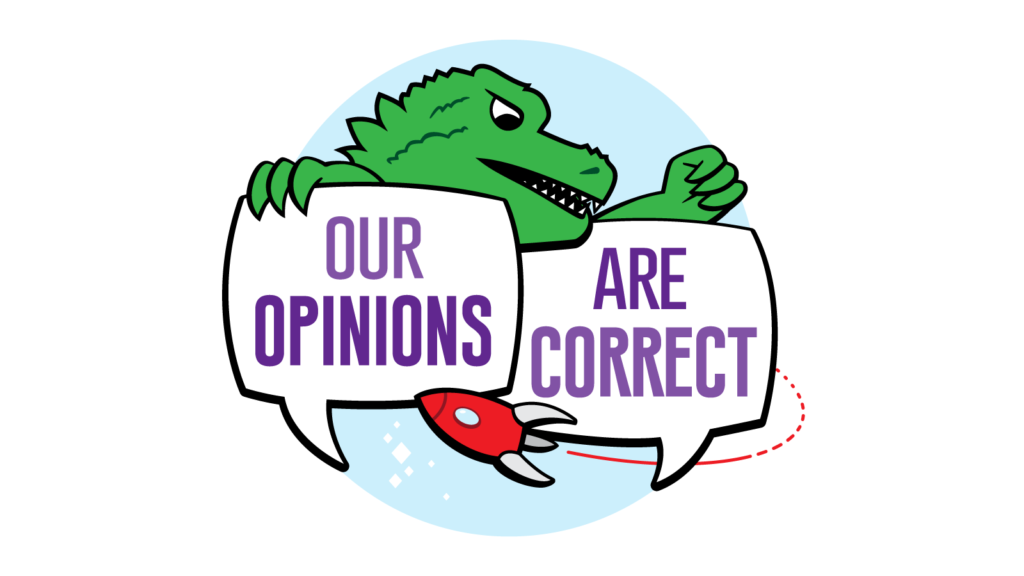
Charlie Jane Anders’ “The Minnesota Diet” is one of 14 stories in Future Tense Fiction: Stories of Tomorrow, to be published by Unnamed Press October 2.
Future Tense is a partnership of Slate, New America and Arizona State University that explores emerging technologies, public policy, and society. Beginning in 2016, Future Tense commissioned a series of stories from leading writers that imagined what life might be like in a variety of possible futures. Future Tense is a selection of those pieces.
Preorder your copy now from Amazon or Unnamed Press.
Carl Slaughter had sent Charlie Jane Anders these interview questions a couple of weeks before he died in an automobile accident on August 11 (see Carl’s obituary here). We are very grateful to the author for helping Carl complete his final project.

CARL SLAUGHTER: Let’s start with a recap of io9. What was the vision? Did it achieve its goals? What was the attraction? What was your contribution?
CHARLIE JANE ANDERS: io9 feels like a very long time ago for me now. I can’t really speak to the vision behind it, because that was all Annalee Newitz, and they were the real founder. I was incredibly grateful to be brought on board to help bring their vision to life. I think the most exciting thing about io9 was that we were combining science and science fiction, and we were trying really hard to have credible science coverage alongside geeking out about movies, books, television, comics, etc. We talked a lot about finding ways to explore the idea that science fiction had become mainstream culture, because we were living in a science-fictional time. For me, the most fun part was getting paid to obsess about storytelling by interviewing creators, writing reviews and critical essays, and doing stuff like my writing “how to” articles. This felt like I was getting paid to go to grad school, and I’m still intensely grateful for the opportunity.
CS: Is your work these days primarily fiction or nonfiction?
CJA: I’m mostly doing fiction lately, which is the luckiest thing ever. I can’t believe I get to make up stuff for a living. I still do the occasional feature or piece of criticism here and there, and of course Annalee and I are doing our podcast, Our Opinions Are Correct. But I’ve been fortunate enough to get into a position where I’m getting to soak my brain in made-up worlds and weird stories.
CS: I’m quoting Wikipedia: “…but it was not until her science fiction novelette “Six Months, Three Days” won her a Hugo, that she realized what readers were after…” What are readers after?
CJA: Wow… I wish I knew. I think what that’s referring to is maybe that “Six Months, Three Days” was a legit creative turning point for me. It was the first time I felt like I got really close to capturing actual emotion and the complexities of relationships in my fiction. I had written a lot of stuff along those lines before, but always felt like I was just kind of poking at the surface of the emotional stuff, instead of really inhabiting it. “Six Months” was something that very easily could have been a cerebral puzzle box, about two different kinds of clairvoyance. I felt like I had a “whoa” moment where I somehow coaxed myself to burrow into the emotional substrate a bit more, and I was overjoyed when the story got such a positive response. It did feel as though I had unlocked another level, or something. But then of course, the next time you try to repeat that or access that level of emotion in the next story, it’s always harder than you expect — writing is often a matter of starting from scratch and trying to rediscover something that you previously got at.
CS: What’s your strategy for character development?
CJA: I think that for me, as a writer, I need to be curious about a character. It’s not that different from being a reader, honestly. I need to find something about a character that makes me interested in them and want to know more about them, and I have to be invested in what happens next for them. It’s all about connecting emotionally with the character. I also think that a lot of writing is actually acting. You have to “get into character” when you’re writing about someone, and you have to try to imagine how it feels to be them, and what’s going through their head as they go through a particular situation. I also think a lot of what I wrote in this io9 essay still applies.
CS: Describe your story for Future Tense.
CJA: In “The Minnesota Diet,” New Lincoln is a brand new smart city that is entirely green and high-tech, with a lot of shiny virtual spaces and vertical farms and stuff. And New Lincoln’s residents aren’t even aware of how dependent they are on external food sources, to the point where the city begins to starve pretty quickly when the self-driving trucks stop showing up. I came up with this idea because I was obsessing a lot about famine, as both a present and future problem. There are huge food crises happening in East Africa, Yemen and Sudan right now, and unlike in the 1980s with Ethiopia, it’s really difficult to get people in the United States to pay attention. So I thought it might be helpful to depict famine and food-insecurity happening to middle-class professionals in an advanced metropolis. Once I started researching the story, and especially after I heard from ASU’s Christopher Wharton, I started to realize this story’s scenario was even closer to reality than I had imagined.
CS: What’s your approach at Our Opinions are Correct?
CJA: I’m so incredibly lucky to be working on this podcast with Annalee, and so grateful to everyone who’s listened to the podcast and supported us. We do a ton of prep before every episode, assembling a whole list of books and other works that are relevant to the episode topic, and making audio clips that we can feature in each episode. We seldom get to talk about everything on our list, but it’s good to know what the important works are, so we don’t inadvertently skip over something really huge. We try to keep the episodes very conversational and unscripted, but between the reading lists and the clips we know we’re going to include, there’s always some built-in structure. The fun part is that we often think of stuff as we’re talking, and the episodes are usually more spontaneous than what we’ve prepared for, because it’s such a fun conversation.

CS: What projects are you actively involved in?
CJA: I have a bunch of stuff going on right now, but the most important thing by far is the untitled young-adult space opera trilogy that I sold to Tor a while back. This is one of the most complex projects I’ve ever done, in part because there’s a whole bunch of alien races and a whole layered backstory to keep track of, and in part because I have to make sure all three volumes form a satisfying adventure story that goes somewhere. The good news is, the first book of the trilogy is finished and has already gone through a lot of editing, and I’m about halfway through writing the second volume. It’s a lot of fun, and unlike anything I’ve ever written before.
CS: What projects are in the works?
CJA: I’m turning one of the unpublished novels that I wrote and shopped around before All the Birds in the Sky into a novella right now. That worked out quite well for Rock Manning Goes For Broke, which was originally a novel I tried to publish in around 2009ish, and then got cut down to around 23,000 words. I find some of these older novels of mine suddenly seem a lot stronger when they’ve lost all of their extraneous subplots and meandering middle sections. This time around, my unpublished novel (an urban fantasy in the mold of Richard Kadrey or Jim Butcher) is requiring a lot of revision to fix some structural problems that became apparent once I stripped away some of the extra junk. But I think it’s going to be super fun when it’s finished.
CS: Any feelers from Hollywood?
CJA: Absolutely, but nothing I can talk about right now. There’s definitely some interest in adapting some of my stuff for the screen, but most of the time I try to stay chill about it. The best part of having something optioned is that you get to go back and rethink something you wrote ages ago, in conversations with some really smart, experience writers and producers, and it’s fun to visualize how the story could be told in a different way. If anything actually gets made, THEN I’ll freak out about it.
CS: Are you on the convention circuit?
CJA: Sort of… I do Worldcon and Wiscon every year, and then I seem to get invited to be guest of honor at the occasional con as well. I seem to do Comic-Con every other year these days, which is just about perfect for that exercise in sensory overload. I’m discovering that smaller local conventions are often the most fun, because you can actually hang out with people and have real conversations. I miss Dragon*Con, and really want to get back there.
CS: What does the future hold for Charlie Jane Anders?
CJA: Hopefully? Uploading my brain into a giant mecha and building a space elevator to a LaGrange point where we can have outrageous spoken word events and parties all the time.
Discover more from File 770
Subscribe to get the latest posts sent to your email.
